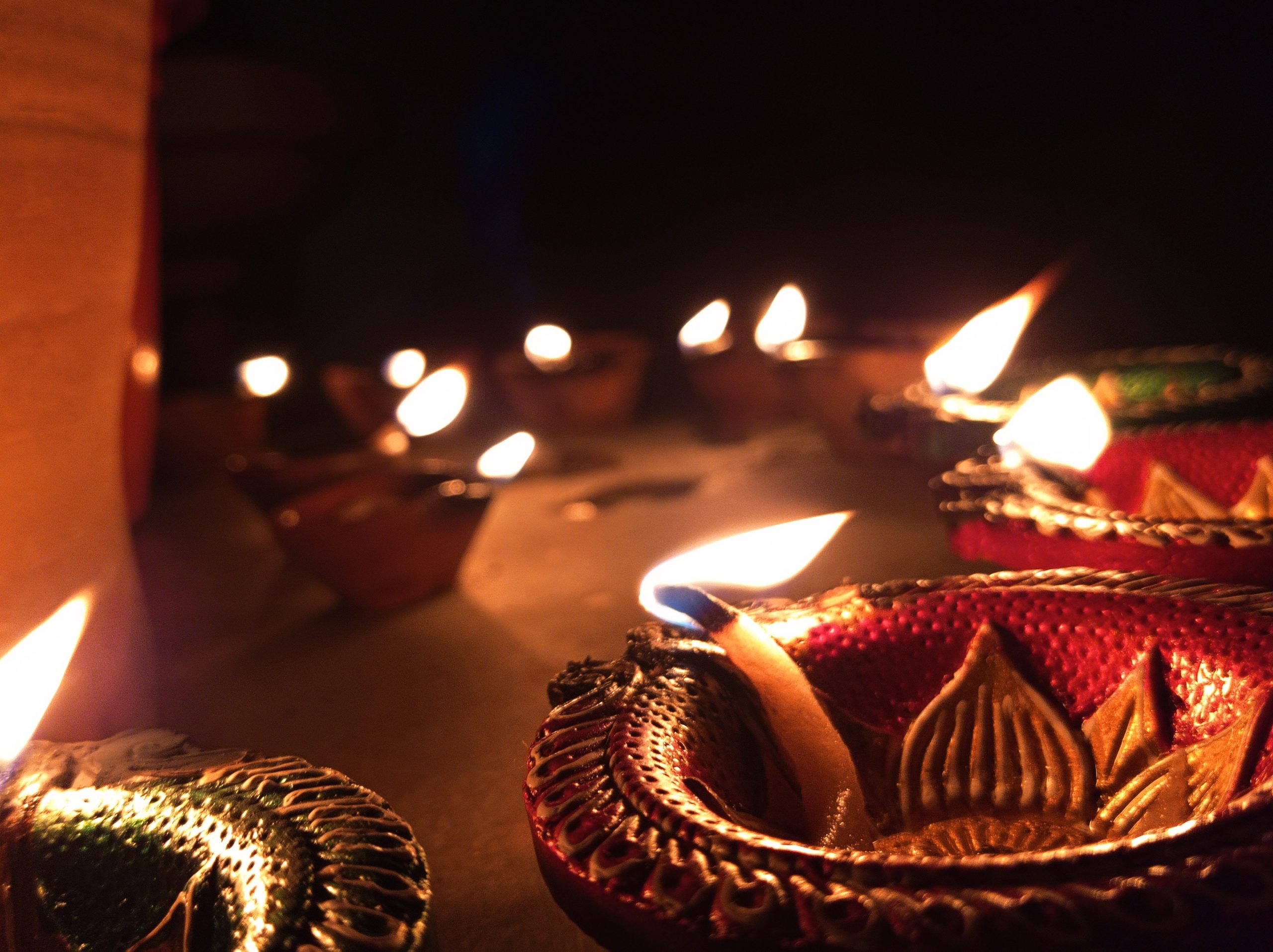Diwali, or Deepawali, a traditional festival originating in Hinduism, was established to celebrate the triumph of light over darkness. The name was constructed from “Deepa” (meaning “Light”) and “Awali” (meaning “Row”), describing the ritual of lining small lamps or candles as a path to welcome the return of gods and thus, health, wealth, and prosperity.
Diwali is a 5-day holiday with each day resembling a return of different gods and signature activities. For example, the first day of Diwali includes house cleaning and buying gold or silver utensils, while on the third day (considered the main day of Diwali), families will gather for Lakshmi Puja for “a prayer to Goddess Lakshimi, followed by mouth-watering feasts and firework festivities.” More specially, the cultural exchange aspect of Diwali is shown in the various rituals and narratives across different countries, such as Nepal, Malaysia, Singapore, and Fiji, and even across different religions.
In the advent of this year’s Diwali, TheDePauw had a conversation with Karan Mahato, the Vice President of Dharma, a student-led cultural organization for Hindu life at DePauw. “For me, Diwali is a time to sit back and gather with family and friends to welcome the return of our Lord Rama after the defeat of demon king Ravana,” Karan shared.
When asked about the upcoming Diwali celebration, Karan was very excited about this year’s performances. “We learned a lot from many logistical challenges in the previous 2 years so we planned ahead and got to spend more time on our dance practices, which are one of the most memorable moments in our preparation process,” Karan said. The event will start with a demonstration of the Puja worshiping ritual before moving on to performances and feasts.
Moreover, Karan looked forward to the collaboration between Dharma and Sigma Chi. “Sigma Chi reached out to us as they were looking to organize a diversity-promoting event, which was important as Diwali is not a primary festival in the US even though there are many American people that celebrate it,” Karan shared. The participation of Boiler Bhangra, a student group from Purdue University, also adds on the messages on connecting individuals of Diwali.
Finally, Karan reflected on the differences celebrating Diwali in the US compared to back home. “Usually on-campus Diwali does not happen on the exact date of Diwali because we need to find days that people are not busy,” he shared. As Diwali’s meanings and practices are extending beyond the original geographical and religious scopes, Karan expressed his desire for an initiative from the University to celebrate the spirit of Diwali, similar to how Monon Bell and Little 5 are celebrated. This also aligns well with how Diwali is becoming a cross-religious and cross-national cultural celebration that connects people from different backgrounds.
Mark your calendar to not miss out on the Diwali Celebration at UB Ballroom today (Nov. 18) and Dharma’s performances at the International Bazaar (Nov. 19, UB Living Room)!

